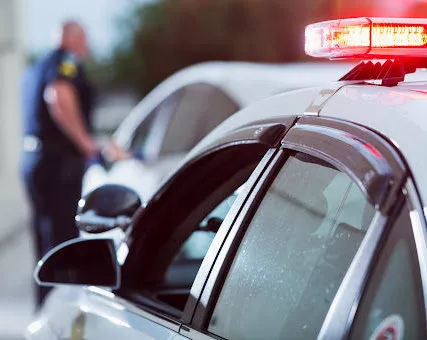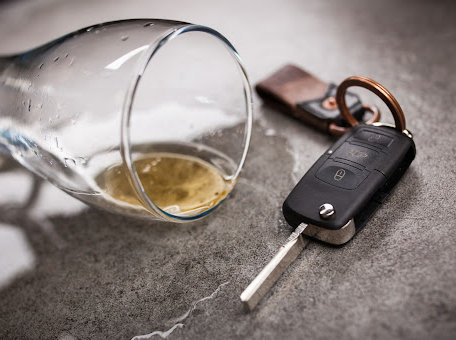What are Louisiana’s Traffic Laws?
While some may have a general understanding of the rules of the road, they may not know the exact traffic laws in Louisiana. So, before driving through the famous Pelican State, it’s important to learn the particulars of Louisiana road laws. Being well-informed could save you from unintentionally breaking the law and even help prevent you from being involved in a car accident.
Driver’s License Requirements
It is mandatory for Louisiana residents driving in the state to have an up-to-date license. Failure to comply with the rules stated in LRS 32:52 will result in a license suspension or complete revocation. New state citizens have 30 days to get a state-issued license after getting approval for residence. Drivers with a license from another state have 90 days to drive in Louisiana before getting an official in-state license.
Cases When a License is Not Required to Drive in Louisiana
Most know that driving in Louisiana requires a license; however, there are a few instances where that may not be the case:

- Non-residential students: If you are studying in Louisiana and have a school ID and a license from your home state, you are not required to have a Louisiana driver’s license.
- Armed Forces: If you are a part of the U.S. military and driving a government-sanctioned vehicle, you do not need a license.
- Farmers: There is no legal requirement to have a license if you are a farmer working with equipment like tractors.
- Temporary operations: If you are doing commercial work on the highway and using machinery, you legally do not need a license.
Do I Need Car Insurance in Louisiana?
Putting it simply, yes, you do need car insurance to drive in Louisiana. As explained in LRS 32:861, vehicles registered in Louisiana must have a minimum level of liability coverage from an authorized insurance agency. The only exceptions to the law are exhibit or forest vehicles, and agricultural vehicles that are inactive.
What are the Speed Limit Laws in Louisiana?
In Louisiana, a driver cannot go over 55 mph unless there is a speed limit sign on the road that adjusts this standard. This law (LRS 32:61) means that the max speed can be lower or higher than the general 55 mph rule. For example, a school zone will likely have a much lower speed limit, and a multi-lane highway usually has a limit of 65 to 75 mph.
Getting a DUI in Louisiana
As stated in LRS 14:98, driving under the influence of alcohol or any other controlled substance is a criminal offense in Louisiana. However, the blood alcohol concentration limit varies depending on age:

- Under 21: 0.02
- Commercial drivers: 0.04
- Over 21, non-commercial drivers: 0.08
First-Offense Penalty for Driving Under the Influence
A DUI in Louisiana is classified as a misdemeanor, which means that a driver can get a six-month jail sentence, have their license revoked for up to a year, be fined anywhere between $300 to $1,000, and be assigned 32 hours of community service. Penalties vary from case to case, but it only takes one reckless mistake to be subjected to severe consequences.
Five Louisiana Traffic Laws You May Not Know
Thus far, the traffic laws mentioned above could be considered common knowledge. However, here are some more specific rules you may not have known but should remember when driving on Louisiana roads.
1. The Move Over Rule
Every emergency vehicle with its sirens and lights on, including ambulances, police cars, and fire trucks, has the right of way! If one of these vehicles is behind you or you are blocking their way, you are legally required to move aside and allow them to pass.
2. Rules for Texting and Driving
According to LRS 32:300.5, using a cellular or wireless device while driving in Louisiana is illegal. This rule means that texting, calling, browsing social media, or other activities that distract you from driving must wait until you are not behind the wheel. The only exception to this is contacting emergency services for help.
3. The No Headphone Rule
Like the restriction against using phones, wearing headphones while operating a vehicle is also prohibited. Any music or phone calls must be heard through car speakers. Those with hearing aids and motorcyclists with special helmets are the only ones who may be exempt from this law.
4. Rules for Reporting Accidents
While it may seem like the obvious course of action, reporting an accident when there is property damage, injuries, or in the worst cases, death is also a requirement in Louisiana. LRS 32:398 states that every party involved must report the accident to authorities and provide contact information.
5. The Seat Belt Rule
A law that people often neglect to follow (LRS 32:295.1) requires that all passengers wear a seatbelt while the vehicle is moving forward. In addition, it is illegal to drive a child without a belt or car seat system that is federally approved.
Consult with a Louisiana Traffic Accident Attorney

If you are facing a potential violation of Louisiana traffic laws or require legal assistance after being involved in a car or truck accident, contact the personal injury lawyers at Gordon McKernan Injury Attorneys for a free consultation.
The Get Gordon team believes that easy comprehension of Louisiana laws is a right everyone should have. Whether you are unsure about your legal standing in a traffic accident situation or seek compensation for injuries caused by an unjust crash, our lawyers have your back. Contact us today to schedule a free consultation, and let us be the support you need during challenging and uncertain times.

